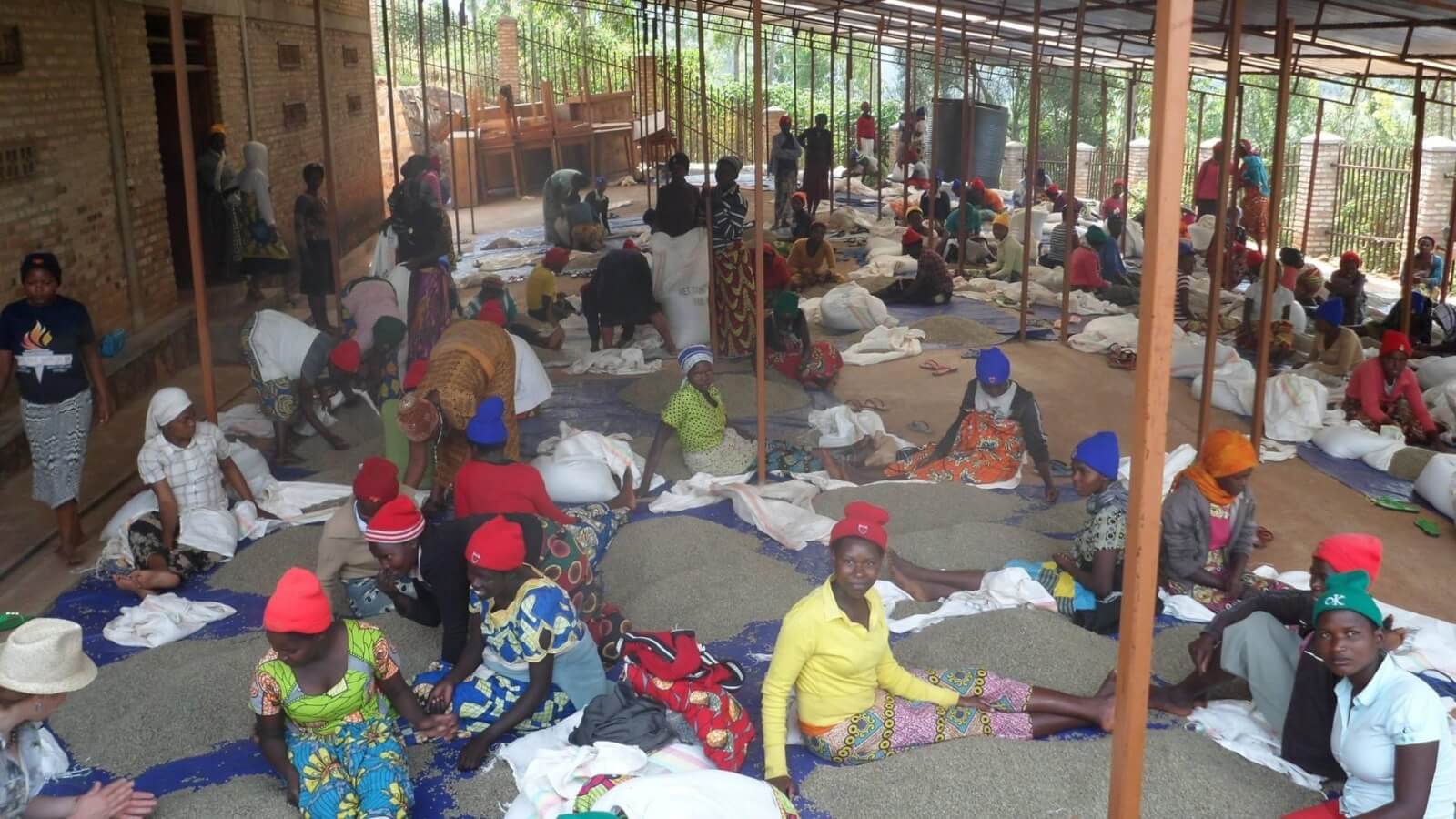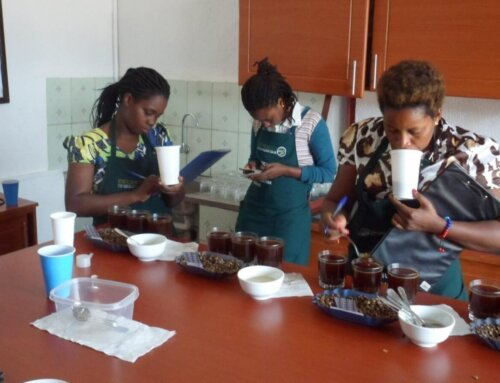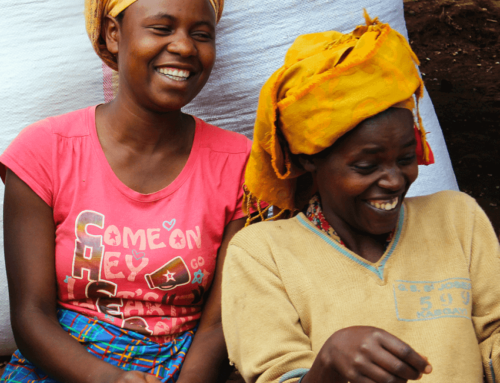Rwanda
Kibingo
Microlot
Region: Huye District
Altitude: 1,700 – 2,200 masl
Process : Washed
Variety : Mixed
Grade : A1
Q Score: 86
High body, complex acidity, orange, raspberry. This coffee has an excellent structure.
Dominant Flavour

Secondary Flavour

ABOUT
Kibingo is the fourth and newest washing station of the Maraba cooperative (locally known as Abahuzamugambi Ba Kawa), and counts 198 members whose farms are located at high-altitude between 1,700-2,200masL. It began operating in 2007 and can now produce up to 45 tons of green coffee per harvest (2.5 containers)
Thanks to the tutelage of Maraba and the work of the union of cooperatives RWASHOSCCO (Rwanda Small Holder Specialty Coffee Company) the farmer-members have gained the confidence they will be able to export their crops, giving them an incentive to keep producing coffee instead of replacing their trees with other crops.
Over the last few years, the Kibingo members have slowly turned towards organic farming and worked towards the export of certified coffee.
PROCESSING
The predominant coffee variety in Rwanda is Bourbon. The harvest usually takes place between March and June.
The mountain roads are in pretty poor condition and very few people own motorized vehicles which makes coffee cherry transport very difficult. To answer this problem the Maraba cooperative organises for all its washing stations to collect coffee cherries daily, directly from the farmers or from collection points.
As most coffee farms are extremely small (fewer than 400 trees on average) and the washing station receives cherries twice a week from hundreds of members, isolating lots by producer proves very expensive and impractical. Instead, the lots are mixed at the washing station on the day they are delivered and labelled by its name, grade and delivery date. (eg: Kibingo 12.04.A1)
The coffee cherries are immediately sorted three times upon delivery: first hand-sorted to remove over- and under-ripe cherries as well as sticks and other foreign matter, then through a water floatation tank where the under-ripe cherries will come up to the surface, and finally through the depulper, which is calibrated to pulp ripe cherries and leave unripe intact.
The pulping process starts late afternoon and carries into the night as to take advantage of the temperatures the cooler temperatures and avoid undesired fermentation. The coffee carries on its journey from the depulper to the fermentation tanks through water channels. Once the water is removed, the dry fermentation stage can begin, and usually takes 24-to-48 hours depending on weather conditions. The remaining mucilage is then washed and the coffee spread in a thin layer on raised bed where they will dry for a week.
MARABA COOPERATIVE
In its native Kinyarwanda language, Maraba is called ‘Abahuzamugambi Ba Kawa’ which translates into ‘Together we work the coffee’. It was established in 2001 in the wake of the civil war and terrible genocide that took place in 1994. I had the pleasure to discover Maraba’s wonderful coffees when I was working for Union Hand-Roasted Coffee , a London-based roastery that has been instrumental in helping the cooperative take shape at its inception.
A prime example of the benefits from relentless work and long-lasting relationships with roasters and importers, Maraba’s success has enabled the cooperative to support its members with financial management workshops, agronomy training and access to affordable farming tools, organic pesticides and fertilizers. Members are also given access to a number of services, including financial support for school fees and health services and loan facilities for home loans and farming equipment.






